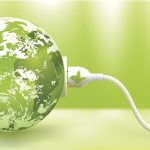Electric vehicles (EVs) are no longer a futuristic vision – they’re cruising the streets and making a significant impact on our planet. From cars and buses to trucks and scooters, EVs offer a range of environmental and economic benefits that are revolutionizing transportation. Here’s a closer look at how EVs are contributing to a cleaner and more sustainable future:
- Reduced Emissions: The biggest advantage of EVs is their lack of tailpipe emissions. Unlike gasoline-powered vehicles, EVs don’t produce harmful pollutants like smog-causing nitrogen oxides and lung-damaging particulate matter. This translates to cleaner air, especially in urban areas where these pollutants are most concentrated.
- Combating Climate Change: Transportation is a major contributor to greenhouse gas emissions, a key driver of climate change. By switching to EVs, we can drastically reduce these emissions and mitigate the effects of climate change.
- Energy Efficiency: Compared to internal combustion engines, electric motors are much more efficient at converting energy into movement. This means EVs can travel farther on a single charge compared to the distance a gasoline car can travel on a gallon of gas.
- Renewable Energy Potential: EVs can be powered by renewable energy sources like solar and wind power. This creates a closed-loop system where clean energy is used to create clean transportation, further reducing our reliance on fossil fuels.
- Reduced Dependence on Oil: As we transition to EVs, our dependence on oil will decrease. This can lead to greater energy security and a more stable global energy market.
- Economic Benefits: The growing EV market is creating new jobs in manufacturing, research, and development. Additionally, the lower maintenance costs of EVs compared to gasoline vehicles can lead to significant savings for owners.
- Quieter Cities: Electric vehicles are significantly quieter than gasoline-powered vehicles. This can lead to a reduction in noise pollution, creating a more peaceful and pleasant environment for residents.
The transition to EVs isn’t without its challenges, such as battery production and the need for a robust charging infrastructure. However, the environmental and economic benefits are undeniable. As technology continues to develop and infrastructure expands, electric vehicles are poised to be a major force in creating a cleaner, more sustainable future for our planet.





